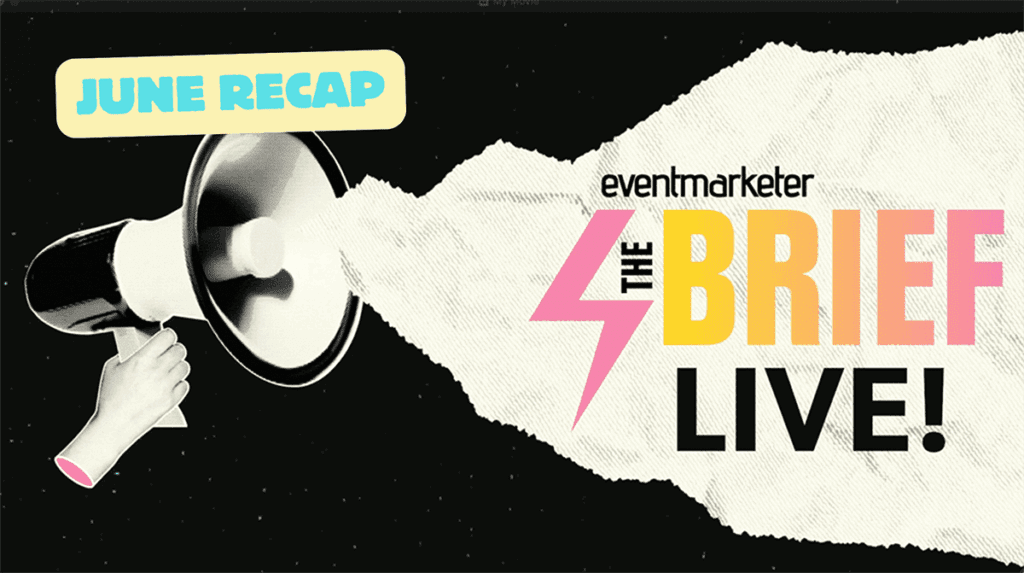10 Tips for Testing PPC Ads
Testing different advertisements in Google AdWords can help to "drive better-converting traffic to the site, improving your Google Quality Score (QS) thus reducing your CPC’s and all the while making the auction tougher for your competitors." Among the top 10 tips for testing PPC ads are to get the basics right, look beyond CTR and make the most of Google’s free tools. (Econsultancy)
SEO for Google+ Profiles and Pages
SEO elements on Google+ personal profiles include SEO title, meta description and dofollow links. These are about the same for Google+ pages. As of now, it appears that Google+ profiles rank higher than pages. (Search Engine Watch)
Getting Links and Traffic From Trending Topics
Trending topics open up a big opportunity to get more links and traffic for your site while using relatively limited resources. "The beauty of promoting trending content is that you can ride the wave to additional free links beyond your initial promotional push." Watching your space, choosing the topic and adding an SEO layer to your content are involved in the process. (Search Engine Journal)
Google Analytics’ New and Improved Landing Pages Report
The Landing Pages report in Google Analytics was quite unhelpful before a change unveiled last week. Users can now link landing pages to goals, which means "we can see the value of each landing page out of the box." (Search Engine Land)
4 Mistakes to Avoid When Searching for Social ROI
"As marketers look beyond engagement to get ‘hard ROI’ from their social investments in the coming year, here are the most common mistakes for them to avoid": 1) counting on Facebook fan pages to drive sales, 2) relying on the "like" button to drive sharing, 3) waiting for a well-formulated social road map to start, and 4) looking for the "silver bullet." (MediaPost)
12 Marketing Predictions for 2012
A lot happened in 2011: Microsoft got Skype, Facebook and Twitter expanded their ad platforms and Google+ made its debut, among other things. What’s in store for 2012? How about the arrival of marketing automation 2.0, the intersection of "likes" with multimedia and the growth of the discount economy? (MarketingProfs)
3 Mobile PPC Marketing Tips
Mobile searchers will reportedly account for 22 percent of search revenue in 2012. Here are three tips for cashing in on this emerging marketing channels: 1) segment your mobile and desktop traffic, 2) understand the intent of mobile searchers and 3) optimize mobile landing pages. (PPC Hero)
How to Analyze Organic Competitors
Knowing how a competitor is ranking for a keyword is one of the more popular topics of interest when it comes to businesses and their organic programs. Fortunately, there’s plenty of easily accessible data to discover this. Here’s a look at how to identify organic competitors with various tools and how to benchmark. (Search Engine Watch)
A Look at the 10 New Google Algorithm Changes
Google unveiled 10 new algorithm changes it’s made. Among them are improved snippets and page titles, cross-language information retrieval, and better date-based search results. (Search Engine Land)
Bing Starts Curating the Web
Editors at Bing are curating content to direct users to answers to common searches. Google recently moved away from this sort of thing. (CNET)
The Best of PubCon 2011
Here’s a round up of the best lines, lessons, jump-the-couch moment, exchanges, anecdotes, theatrics, session title, lines from blog coverage, tweets and coverage from PubCon 2011. Included is Leo Laporte’s take that search engines might not be relevant in five months. (Managing Greatness)
Why Blending Usability and SEO Matters
"Usability" and "SEO" represent two separate countries with their own cultures and belief systems. "It used to be that usability people were the destroyers of marketing efforts and SEO ruined good user interface. We may want to move on past that." (Search Engine Land)
PPC Experts Give Their Takes on Google Changing the Placement of Search Results Ads
Google recently announced that it would be moving its PPC ads on its search results pages from the right side of the page to the bottom. How will this affect PPC strategies? Why is Google doing this? Will PPC ads at the bottom of search results pages fare better than those on the right side of the page? Three PPC experts share their perspectives. (Econsultancy)
5 Questions to Ask Before Buying Mobile Video Advertising
Mobile video advertising is quite different from TV and online video. Before diving in the mobile video advertising pool, consider these questions: Where will my mobile video ads run? What best practices help maximize mobile campaign effectiveness and reach? What interactivity and targeting options are available? How much does your partner know about mobile video? (MediaPost)
5 Reasons PPC Search Beats PPC Social
PPC social media is hot and sexy, but PPC search still beats it. Here are five reasons why: 1) social media fatigue, 2) harvesting demand is easier than creating or influencing demand, 3) profiles are underpopulated, 4) profiles lie, and 5) "likes" are poor success metrics. (ClickZ)
How Often Should Retailers Send Email Promotions?
Many retailers send promotional emails every day, which may be too often for some consumers. Some questions to ask are: Is the content in your message what readers want to see? How do your subscribers react to your current email frequency? Do subscribers have a choice in how frequently they hear from you? (MailerMailer)
Google May Punish Sites for Having Too Many Ads
According to Matt Cutts, Google is looking at penalizing ad-heavy websites that make it difficult for people to find good content on Web pages. “What are the things that really matter, how much content is above the fold," Cutts said. “If you have ads obscuring your content, you might want to think about it.” (Search Engine Watch)
LinkedIn and Facebook for PPC Ads
PPC advertising isn’t just about Google AdWords and Microsoft adCenter anymore – now LinkedIn and Facebook ads are up for consideration. But how do you know which options best fit your needs? Here’s a look at LinkedIn PPC (a great fit for advertisers trying to reach businesspeople in a particular field) and Facebook (great for building a fan base). (Fluency Media)
Celebrity, Authority and Link Building in SEO
Your site’s celebrity and authority influences which link-building strategies will work. Here’s a quick primer: Celebrity is how well you or your brand is known and authority is recognition by search engines. There are four quadrants this leads to: 1) high authority, low celebrity; 2) high authority, high celebrity; 3) low authority, low celebrity; 4) low authority, high celebrity. (Search Engine Land)
Facebook to Make Retroactive Privacy Changes Opt-in Instead of Opt-out
Facebook is nearing an agreement to settle a case with the FTC by making its retroactive privacy settings changes opt-in instead of opt-out. This would require Facebook to get clear consent to make changes to what is shared by users. (The Next Web)
Google+ Pages: Impact on Advertising
Google+ Brand Pages mean some pretty big things for advertising: 1) Brand Pages are now a hub to fuel cross-channel marketing, and 2) brands now have some control and insight into +1 behavior. "In order to impact paid search and display, brands will need to create content that engages the audience and maximizes interactions." (AdAge.com)
SEO Guide to AdSense, Ads and Placement
"Ads are great, but as SEOs we need to present them as the commercials that they are, not the main show." Here’s a look at: 1) ads as a ranking factor, 2) Panda-friendly layouts, 3) balancing your template footprint, 4) future-proofing your ads and 5) smart ways to increases ad revenue. (SEOmoz)
AOL, Yahoo and Microsoft Agree to Partner for Online Display Ads
AOL, Yahoo and Microsoft aren’t merging, but they’re partnering to improve the process of buying and selling premium online display inventory. "In other words, the agreements will allow each to offer the other’s display ads to their respective customers." (TechCrunch)
Trada: Crowdsourced Facebook Ads
Trada uses crowdsourcing to create ads. It’s taking its tactics to the realm of Facebook ads. This could potentially lead to better ads, more clicks and better pricing for Facebook. (The Next Web)
Facebook Brand Pages Have Been ‘Liked’ By 9% of Internet users
According to Crowd Science, Facebook brand pages have been "liked" by just 9 percent of Internet users, trailing the number of "likes" for all other Facebook elements, like wall posts (16 percent), pictures (16 percent) and comments (16 percent), for example. According to the study, 28 percent of respondents said they "like" something to show support, while 28 percent said they do this because they enjoyed what was being said or shown. (Crowd Science)
 Network
Network

